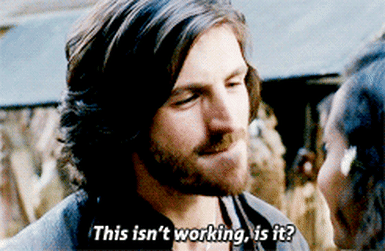Closure often feels like an elusive concept, something we long for but don’t always get, no matter how much we wish for it. It’s difficult to accept, but if we want to find peace and move forward, we have to come to terms with it. Some argue that closure is overrated, but that doesn’t mean it’s unimportant. In fact, giving someone closure can be an incredibly powerful and healing act.
In today’s post, I want to focus on why providing closure is a gift—one that fosters healing, maturity, and personal growth. In a world where ghosting and avoidance have become the norm, let’s choose to be different.

What is Closure, Really?
Closure is the sense of completion we experience after going through a difficult or painful event. It’s like finally being able to close the book on a tough chapter in life and move forward. When we provide closure to someone, we help them fill the void of unanswered questions and lingering emotions. It’s about giving them the clarity they need to let go of negative feelings and make peace with what happened.
Offering closure is an act of kindness, maturity, and emotional responsibility. It requires us to empathize with the other person, actively listen, and provide explanations, reassurances, or finality that can help them move on. By doing so, we give them a sense of resolution that they might not find on their own.
Closure vs. Forgiveness: Are They the Same?
Not exactly. While they are often linked, closure and forgiveness serve different purposes.
Forgiveness is about releasing resentment, even if the other person never apologizes. It’s a choice to let go of anger, for your own sake. As Oprah once said, “Forgiveness is giving up hope that the past could have been any different.”
Closure, on the other hand, is about finding understanding, resolution, or finality—whether that comes through a conversation or personal reflection, allowing us to move forward.
You can forgive without having closure, and you can find closure without forgiving. The two are connected but not interchangeable.
Why We Should Actively Choose To Give Closure
I know firsthand how painful it is to move on without closure. A breakup without clear answers can feel like carrying a weight that refuses to be put down. The endless “what-ifs” and unresolved emotions consume you, making it hard to find peace.
That’s why I believe in giving closure whenever possible—even when it’s hard. Not because the other person necessarily deserves it, but because I deserve peace.
Some might say, “Oh, they don’t even deserve closure.” But here’s the truth: it’s not just about them. It’s about you, too. Giving closure means releasing yourself from the emotional burden of unfinished business. It’s a way of choosing healing over resentment and peace over bitterness.
By giving closure, you ensure the other person isn’t left in emotional limbo, and you free yourself from lingering guilt or unfinished business. You walk away knowing you did the right thing, and that alone is worth it.
How to Give Closure
✅ Listen With Empathy – Let the other person express themselves without interruption. Sometimes, just being heard is enough.
✅ Be Honest, Even When It’s Hard – Don’t sugarcoat the truth or give false reassurances. Clarity is more valuable than comfort.
✅ Stay Respectful and Calm – Closure isn’t about blame; but understanding. Keep the conversation mature and kind.
✅ Offer an Apology if Necessary – If you’ve caused pain, acknowledge it and take responsibility. A sincere apology can be healing.
✅ Set Boundaries – Closure doesn’t mean staying in contact. If necessary, make it clear that this is the final conversation.
Closure Beyond Breakups
Closure isn’t just for failed relationships. It’s important in many areas of life:
💔 Friendships – Ending a friendship with honesty prevents misunderstandings and resentment.
💔 Unrequited Love – If someone has feelings for you, be upfront rather than leading them on. It’s the kindest thing you can do.
💔 Loss & Grief – Finding closure after losing someone can help with healing, even if they’re no longer here to give it.
💔 Career Changes – Whether it’s being laid off or leaving a job, understanding “why” can make moving forward easier.
No matter the situation, closure provides a sense of finality and allows for growth.
Final Thoughts
Closure is a gift. It’s an act of kindness and emotional maturity that can help both parties move forward in a positive direction.
It’s not about excusing bad behaviour or erasing the past—it’s about providing clarity, resolution, and peace. It’s a way of acknowledging the importance of what happened while allowing everyone involved to turn the page.
Next time you have the opportunity to give someone closure, take it. Be the person who chooses clarity over avoidance and healing over indifference. You never know how much peace you might bring to someone—maybe even to yourself.
X, Hani. ❤
Discover more from Wanderhoney.com
Subscribe to get the latest posts sent to your email.












 Views Today : 3
Views Today : 3 Views Last 30 days : 5122
Views Last 30 days : 5122 Views This Year : 22739
Views This Year : 22739 Who's Online : 0
Who's Online : 0 Your IP Address : 2a03:2880:f806:b::
Your IP Address : 2a03:2880:f806:b::